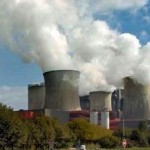- Decentralized and Reliable: Payments for REDD+ projects would come from the generation of REDD+ carbon credits and their trade on international carbon markets rather than from currently cash-strapped donor country budgets. In other words, the burden of reducing, halting and ultimately reversing deforestation would not be borne by tax payers in developed countries, but by carbon polluters (or emitters). In addition to increasing the reliability and potential volumes of performance-based payments, such a market-based system would provide a strong real-price signal.
- Leakage-Proof: Risks that successful deforestation reduction efforts in a given region be used to justify increased deforestation in another one – a phenomenon commonly known as “leakage” – will be mitigated by the enforcement of a national baseline. The baseline will aggregate project-level performance indicators into a country-wide performance indicator.
The report also calls for reforms to forest-based projects under the Kyoto Protocol‘s Clean Development Mechanism (CDM), which the financial sector would like to see improved – namely with the creation of permanent carbon credits – in a post-Kyoto regulatory environment.
“Our position is simple: our involvement is direly needed, and we wish to get involved. But we cannot do so unless it makes basic commercial sense to us,” said Armin Sandhövel, CEO of Allianz Climate Solutions, another member institution of UNEP FI.
“With this report, we wish to state with one voice, as an industry, that policy-makers must urgently put in place viable avenues and formats for upscaled private sector investment and involvement in REDD+ by, firstly, redoubling efforts to agree on a climate change deal that will replace the Kyoto Protocol, and secondly, making policy decisions that will make investments in the protection, rehabilitation and creation of natural forests more competitive against conventional, unsustainable options. This report says how that can be done,” he added.
Part I of REDDy – Set – Grow, released earlier this year, cast a spotlight on the abundance of untapped opportunities in current and emerging forest-carbon markets.
Notes:
About the United Nations Environment Programme Finance Initiative (UNEP FI)
UNEP FI is a unique global partnership between the United Nations Environment Program (UNEP) and the global financial sector. UNEP FI works closely with over 200 financial institutions who are signatories to the UNEP FI Statements, and a range of partner organizations to develop and promote linkages between sustainability and financial performance. Through peer-to-peer networks, research and training, UNEP FI carries out its mission to identify, promote, and realize the adoption of best environmental and sustainability practice at all levels of financial institution operations. For more information, visit www.unepfi.org.
About UN-REDD Programme
The UN-REDD Programme is the United Nations Collaborative initiative on Reducing Emissions from Deforestation and forest Degradation (REDD) in developing countries. The Programme was launched in September 2008 to assist developing countries prepare and implement national REDD+ strategies, and builds on the convening power and expertise of the Food and Agriculture Organization of the United Nations (FAO), the United Nations Development Programme (UNDP) and the United Nations Environment Programme. For more information, visit www.un-redd.org.
About UNEP Green Economy Report
UNEP’s Green Economy Report and subsequent, Forests in a Green Economy: A Synthesis, confirm the critical links between forests and the transition to a low-carbon, resource-efficient green economy. In particular, ‘Forests in a Green Economy’, shows that investing an additional US $ 40 billion a year in the forestry sector could halve deforestation rates by 2030, increase rates of tree planting by around 140 per cent by 2050, and catalyze the creation of millions of new jobs. Backed by the right kinds of enabling policies, an investment of about two-thirds more than is spent today could also sequester or remove an extra 28 per cent of carbon from the atmosphere, thus playing a key role in combating climate change. For the report, check:
http://www.unep.org/greeneconomy/Portals/88/documents/research_products/Forest%20final.pdf
Source: UNEP.














